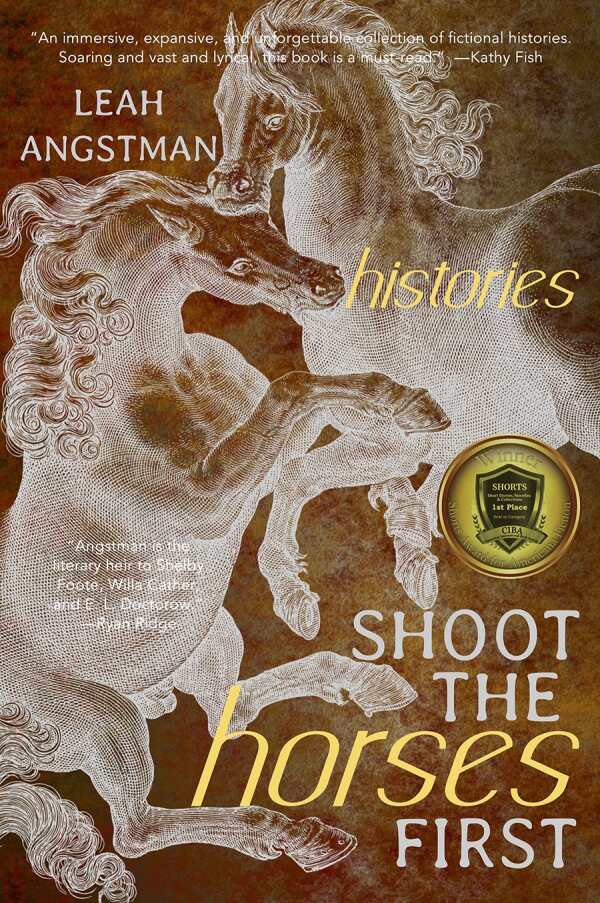Shoot the Horses First
Histories
In the sixteen sumptuous historical stories of Leah Angstman’s Shoot the Horses First, outsiders and pioneers face disabilities and prejudice with poise.
An orphan shipped from Brooklyn to Illinois hopes to meet the right adoptive family; a Civil War veteran recalls the joy of a snowball fight during a harsh winter. Playing at the 1893 Chicago World’s Fair, Frederick Douglass’s grandson dreams of being the first Black violinist to undertake a transcontinental tour. Women long to escape domesticity or prostitution to pursue careers.
The flash entries crystallize moments of realization, often about health: a man and a girl fail to outrun an outbreak of yellow fever; a doctor attempts a blood transfusion from a dog to a man. Such threads and reversals connect disparate narratives: in one, a boy is scorned for doing laundry and sewing; in another, a maid is mistaken for a boy when she sweeps a chimney.
Vintage horse motifs appear between the entries, whose dedication to period accuracy leads to keen cultural details. In the standout story “A Lifetime of Fishes,” a white woman injured in a boating accident is taken in by Native Americans; she begins to learn their language and customs. A glossary defines the Wampanoag terms included.
The book’s longer pieces shine; their out-of-the-ordinary romances are given space to develop. In the novella Casting Grand Titans, a botany professor in 1850s Iowa learns that her salary is 6% of a male colleague’s. She strives for intellectual freedom, reporting a new-to-science species of moss, while working towards literal liberation for runaway slaves. In the tender “The Light Ages,” a medical student determines to validate a part-paralyzed girl by recording her compositions on a phonograph for all to hear.
Set in the past among lives complicated by ill health and discrimination, the stories of Shoot the Horses First feature epiphanies and triumphs.
Reviewed by
Rebecca Foster
Disclosure: This article is not an endorsement, but a review. The publisher of this book provided free copies of the book to have their book reviewed by a professional reviewer. No fee was paid by the publisher for this review. Foreword Reviews only recommends books that we love. Foreword Magazine, Inc. is disclosing this in accordance with the Federal Trade Commission’s 16 CFR, Part 255.

